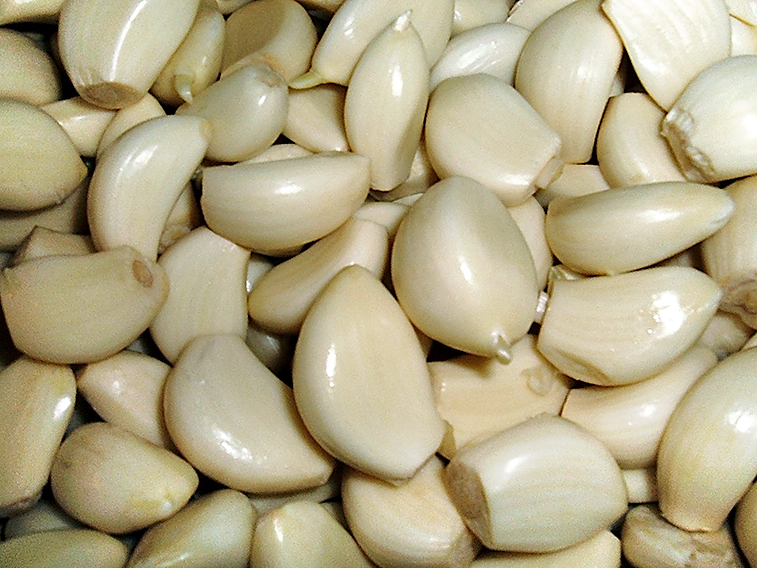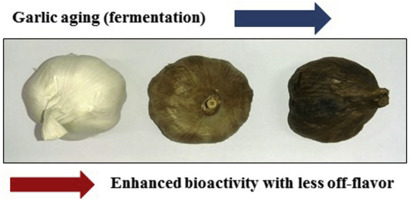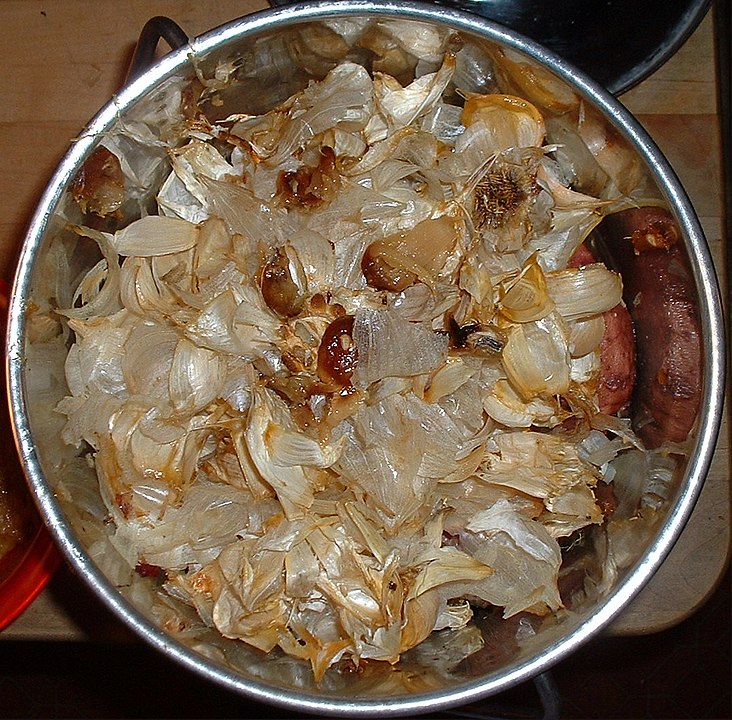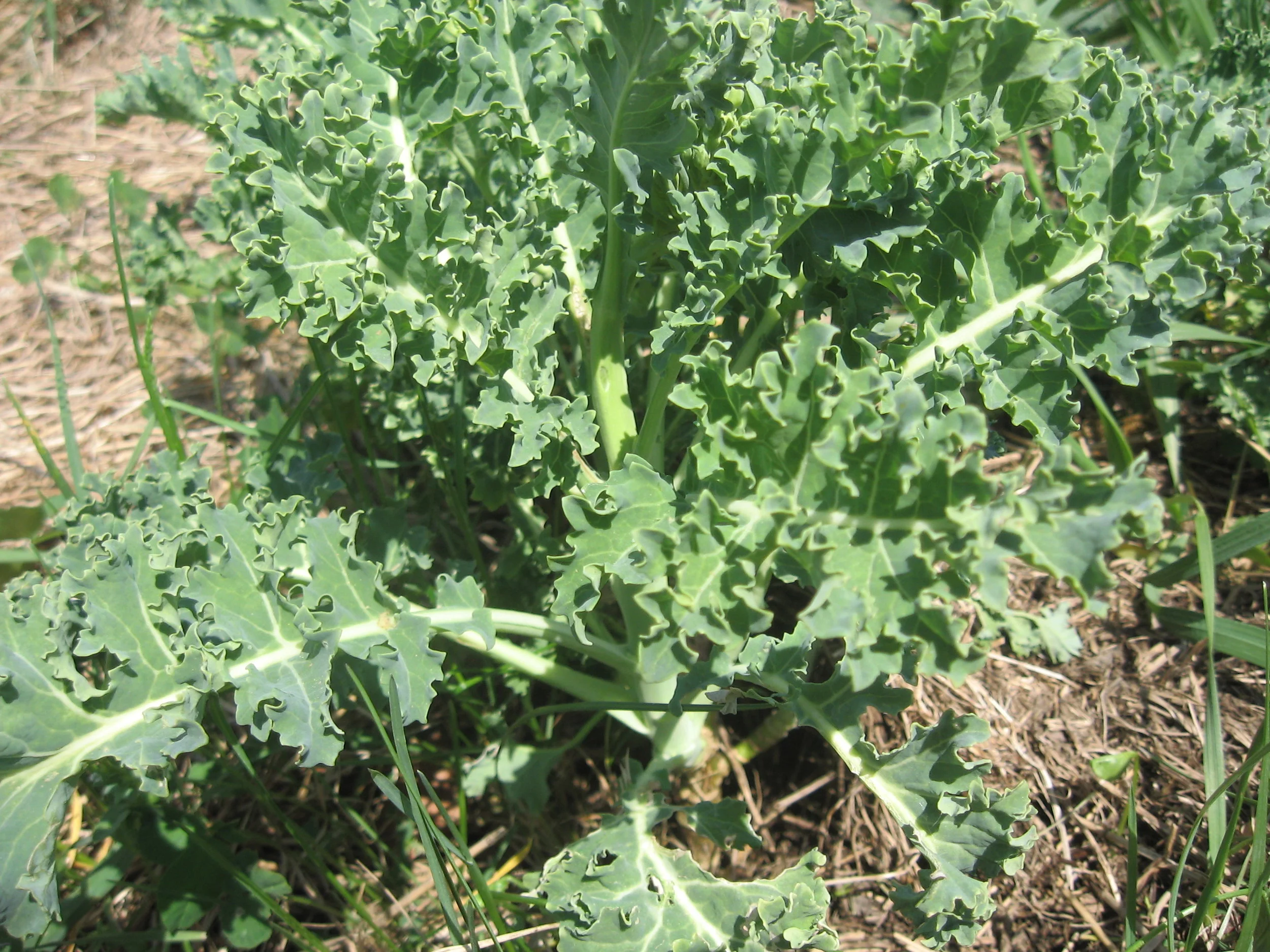Updated August 2023
Garlic is a great addition to the medicine cabinet and the kitchen and has a long-recorded tradition in medicine, cooking, and of course to ward off vampires.
Garlic has been well-researched and studies have proven its benefits. Garlic boosts the immune system, lowers cholesterol, is anti-bacterial, and contains powerful antioxidants.
It’s easy to get these health benefits by adding garlic to dishes when cooking. In addition, you can preserve your garlic harvest as a health aide.
Garlic in History
Ancient Egyptians used garlic and cloves were found in King Tutankhamen's tomb. The slaves building the pyramids were supposedly given garlic to make them strong.
Some of these slaves were the Jews who apparently came to love garlic. Garlic became part of the Hebrew Talmudic Law which stipulates its use in certain festival dishes. In fact, the Ancient Romans referred to the Jews as garlic eaters and they adopted garlic into their cuisine.
During the Exodus, the people complained to Moses “We remember the fish we ate in Egypt at no cost—also the cucumbers, melons, leeks, onions and garlic” Numbers 11:5 NIV
The Greeks also loved their garlic and there is evidence that the first Olympiads at garlic for strength and agility. I suppose that makes garlic the first “performance-enhancing” drug.
Interested in How to Grow The Best Garlic? Check out my article that will tell you how.
Garlic In The Medicine Cabinet
Garlic has many medicinal properties.
Stimulates digestive organs
Emulsifies cholesterol and loosens it from arterial walls
Reduces high blood pressure
Antioxidant
Removes chelators such as heavy metals
Natural antibiotic
Garlic Syrup
Here is an easy-to-make garlic syrup that is great to use for colds, coughing, and the flu.
Slice up a pound of garlic cloves into small chunks
Pour a quart of boiling water over the cloves.
Let the mixture sit for twelve hours.
Stir in one cup of cane sugar
Fermenting Garlic in Honey
One of my favorite ways to preserve garlic is to ferment it in honey.
Just fill a canning jar with peeled garlic cloves and pour raw honey over them. The garlic may float in the honey and that’s normal. Leave a couple of inches of headspace at the top.
Your garlic cloves should be fresh from the garden or farmers’ market. The honey needs to be “raw” because that carries the natural enzymes that do the fermenting job.
Cover the jar and put it in a dark place for about a month. You will need to remember to “burp” your jar every 2-3 days. Do this by flipping the jar over. You can also open the jar and give the mixture a little stir.
Make A Garlic Spray To Repel Pests
Garlic makes a great spray to repel pests in the garden such as Japanese beetles, cabbage moth caterpillars and weevils. It also can be used on pets to repel fleas.
Put several cloves in a blender
Add enough water to cover the bulbs
Puree the mixture for several minutes
Strain the garlic out using cheesecloth or a fine mesh strainer
Put the “juice into a spray bottle
Save the pulp for cooking uses
What Is The Deal With Black Garlic?
Black garlic is the latest rage among garlic aficionados. Black garlic is simply aged garlic. It becomes black through a slow heating fermentation process which lasts several weeks.
You know how wine gets better with age? Well so does garlic! And it still contains all the same antioxidants as raw garlic.
Black garlic is all the rage for us however it has been produced and eaten for hundreds of years in South Korea, Japan, and Thailand.
It tastes sweet and syrupy making it very popular in cooking. And it loses the strong allicin taste that sometimes causes your tongue to cringe.
Black garlic is great spread on bread, and used in sauces and soups.
Black Garlic Spread
Ingredients
7 ounces Cream Cheese
2 tablespoons of Sour Cream
2 Black Garlic cloves
2 Green Onions; finely slice the green parts
Salt and Pepper to taste
Instructions
In a food processor, process all of the ingredients together until well combined.
Great with veggies such as carrots and celery. You can also spread it on crackers or chunks of French bread.
Notes
If you have the time, let it sit in the refrigerator for an hour. This allows the flavors to marinate and get better.
Check out my YouTube Channel!
Garlic In The kitchen
Garlic is not only good for you, it adds a certain zing to your dishes.
There are many ways to cook garlic and add it to your favorite dishes.
Roasted Garlic
Roasted Garlic is one of my go-to recipes. I then add the roasted garlic to vegetables or pasts dishes. It also pairs well with bread and dipping sauce. Just dip a nice crunchy French bread in some olive oil then spread the roasted garlic on top. Yum!
To Roast Garlic
Preheat oven to 375 degrees
Remove the papery outer layer from the cloves and trim off the ends.
Place cloves on a baking dish and sprinkle extra virgin olive oil on top
Roast for twenty minutes
Garlic Math
1 medium-sized clove equals one-half teaspoon of minced garlic.
6 - 8 large cloves per bulb
on average 9 - 11bulbs per pound
Skordalia
One of my favorite garlic recipes is Skordalia, a Greek garlic sauce. This sauce is fabulous with cooked vegetables or as a spread on pita bread.
Check out this video from Greek Chef Akis Petretzikis
Dealing With The Smell
OK - there is one small drawback to garlic. It does have an odor!
Thomas Nash, the famous poet from the 1500’s wrote “ “Garlik maketh a man wynke, drynke and stynke”
There are several ways to deal with the smell.
During preparation you can use a garlic press instead of using your hands to hold and cut. Pressing garlic actually releases more flavors from the clove.
Author, Ame Vanorio, is the director of Fox Run Environmental Education Center, an environmental educator, and an author. She writes books on gardening and wildlife rehabilitation. Her most recent writing adventure is developing fun and educational children’s activity books.









Planting schedules can be tricky. You need to understand and be watching climate patterns and weather in your area. It’s important to know the days to maturity of the plants and what type of weather do they grow well in. I live in Kentucky. Zone 6b. Zone Six covers a large section of the country including parts of New England, Pennslyvania, Ohio, Kentucky, Indiana, Missouri, across Kansas, and into the Rocky Mountain states.